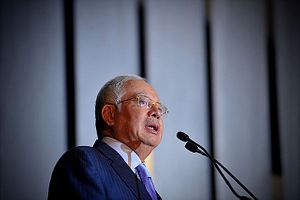On June 23, British citizens voted in a referendum to leave the European Union. The so-called “Brexit” has rocked financial markets and triggered alarm across capitals about what the wider implications might be for Britain, Europe and the world.
A number of countries began issuing statements following this groundbreaking event. In Southeast Asia, the comments from Malaysia, a former British colony, were especially notable.
Malaysian Prime Minister Najib Razak struck a rather balanced note in his official statement. On the one hand, he acknowledged that Britain had taken a “historic and unprecedented” step with an unpredictable future beyond the period of financial market volatility we are already seeing.
But on the other hand, he also stressed that the effect on Malaysia would be negligible, in part because Malaysia’s economic exposure to Britain is quite limited as it only accounts for about one percent of the country’s total trade. Najib went on to say that in fact, depending on what Britain decides to do, both countries could look to boost ties.
“We should increase this, and there may be an opportunity to do so now if the UK reaches out to strategically important nations beyond the EU,” he said.
More interesting, though, were the comments from Malaysia’s trade minister Mustapa Mohamed. According to local media outlets, Mustapa said that though Britain was no longer a part of the currently negotiated Malaysia-EU free trade agreement, Malaysia could explore having a separate bilateral FTA with Britain.
“The decades of close cooperation between Malaysia and the UK transcend beyond economic partnership,” he said. “They form a strong foundation for our future growth and Brexit will not affect our close ties. We will continue to build upon this momentum and forge ahead,” he added.
Though these comments are noteworthy, much of what happens next depends on Britain. It is still unclear if, when and how the government will actually follow through on Brexit, a move which in practice could take up to two years.
































